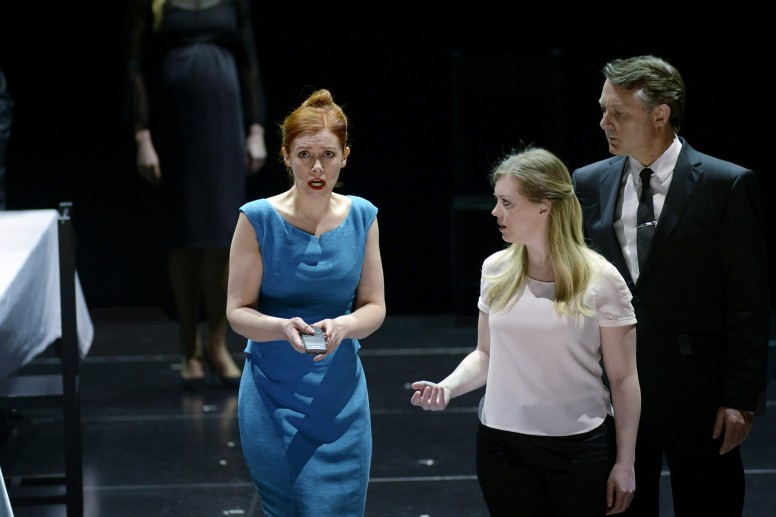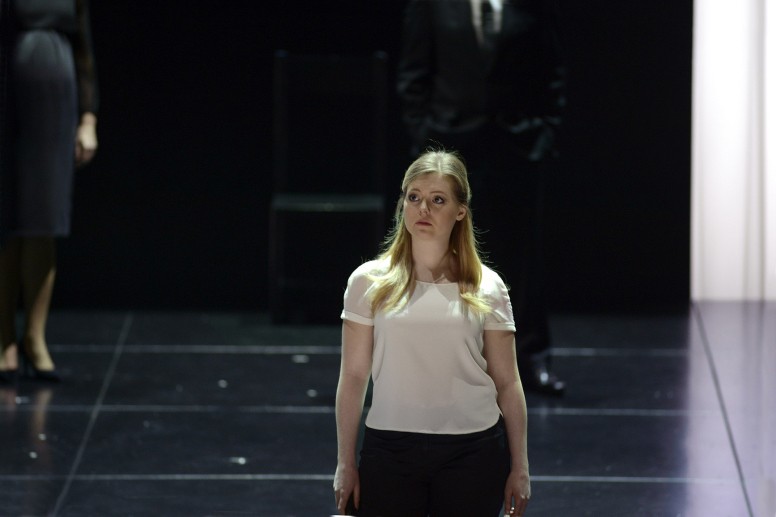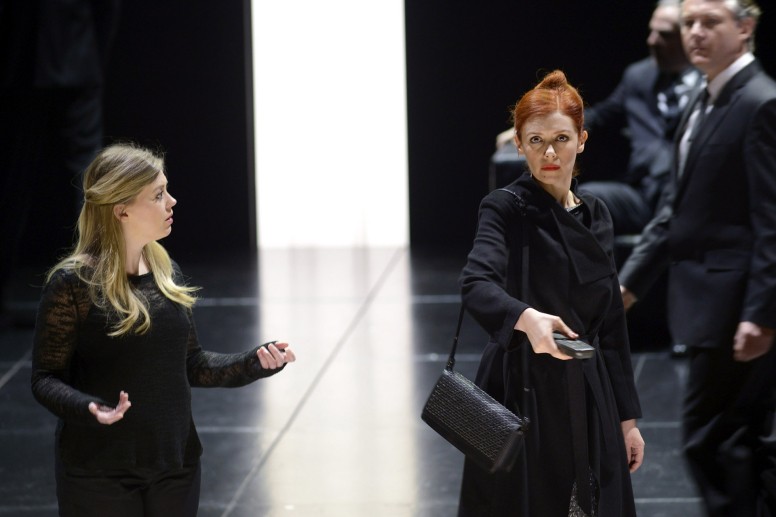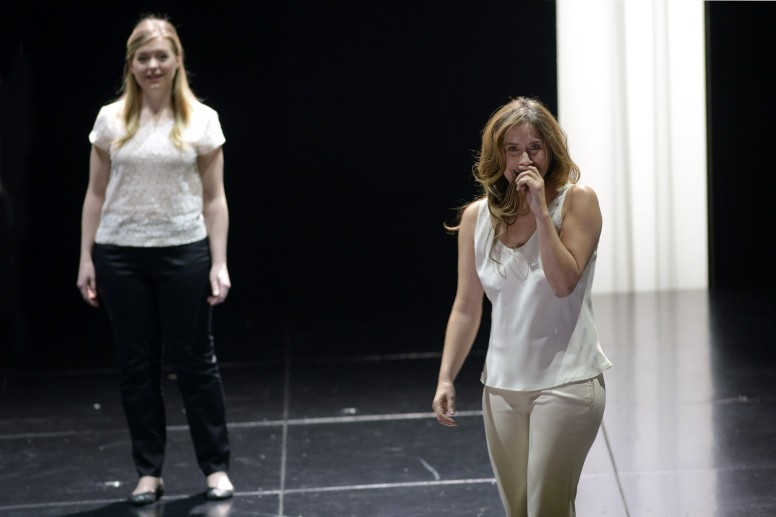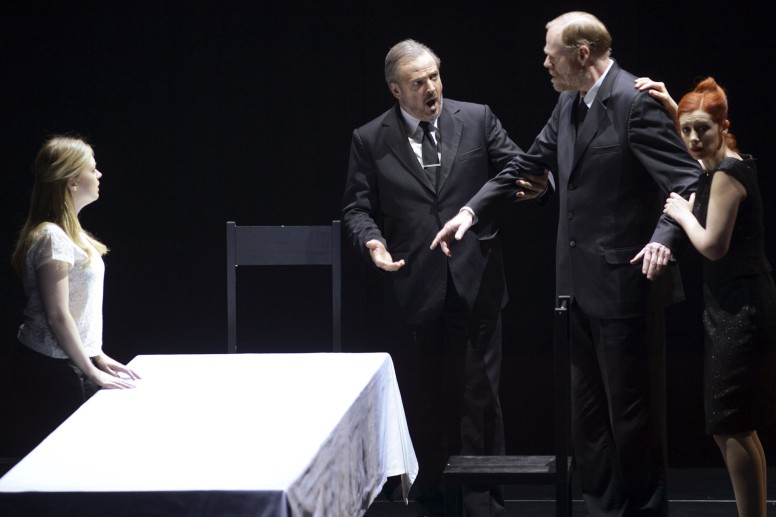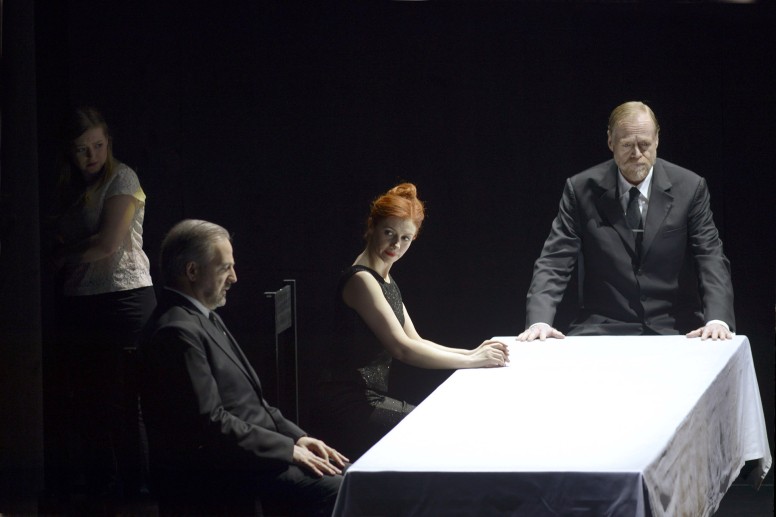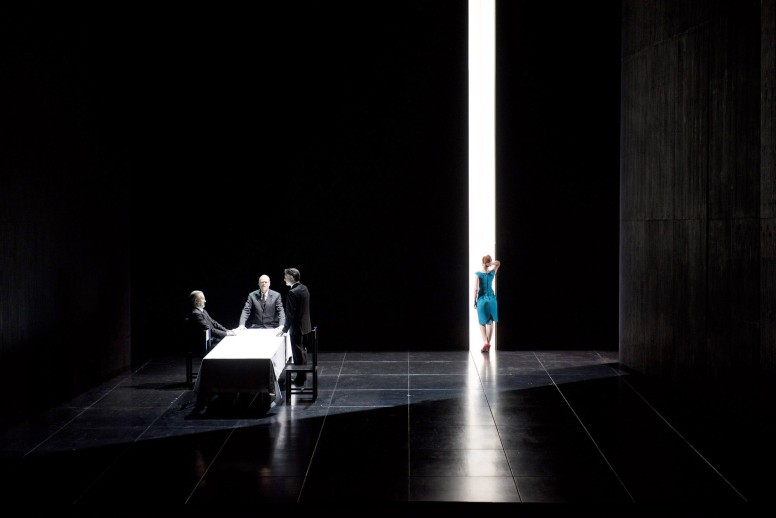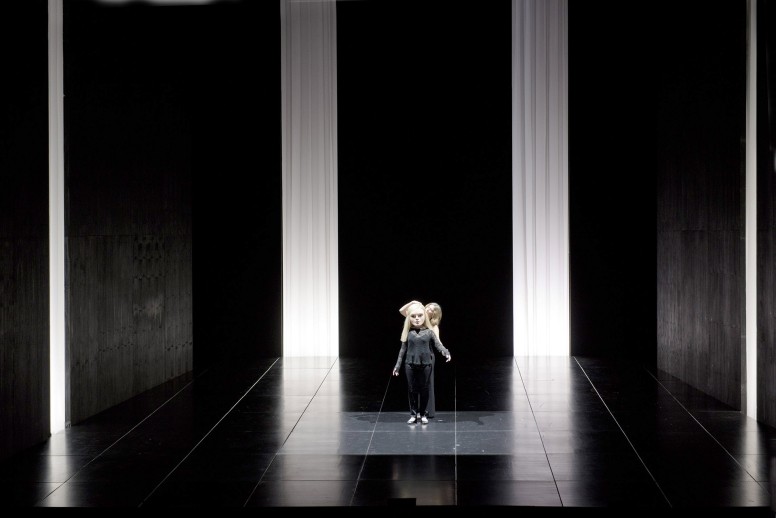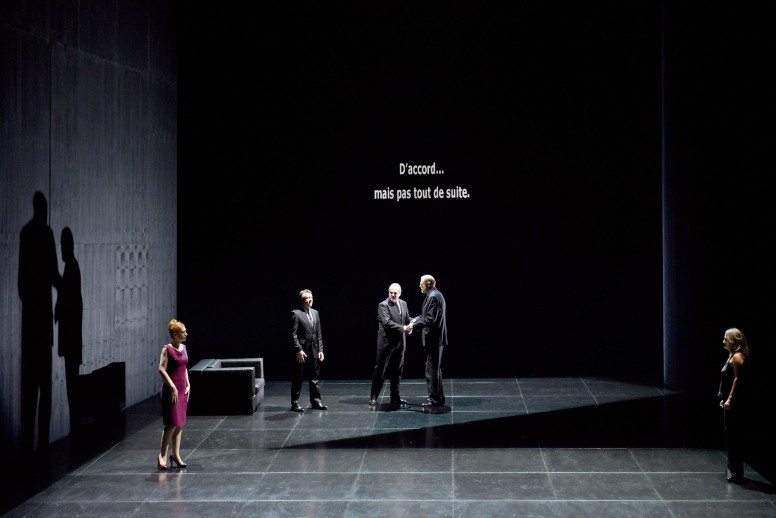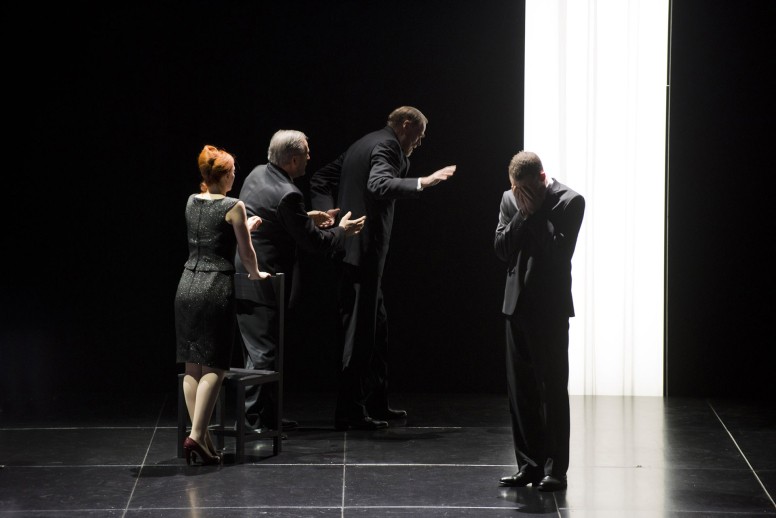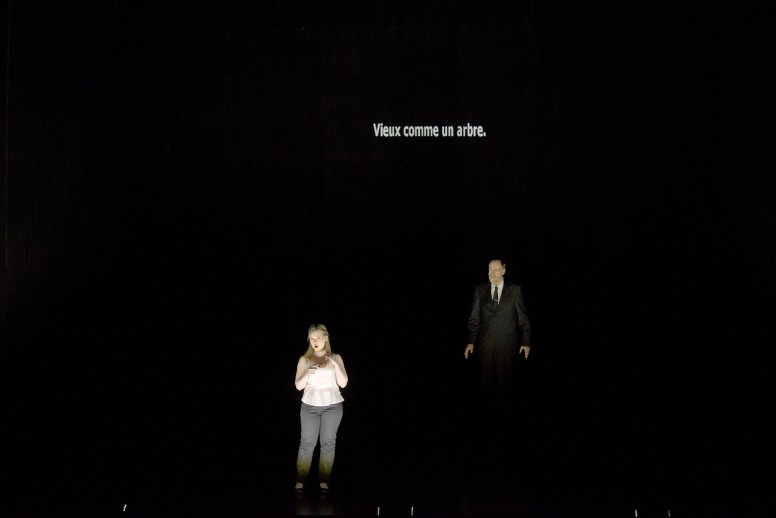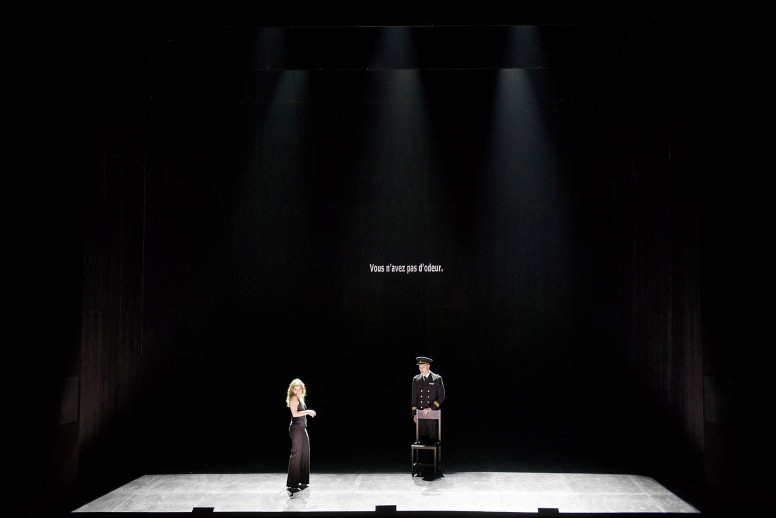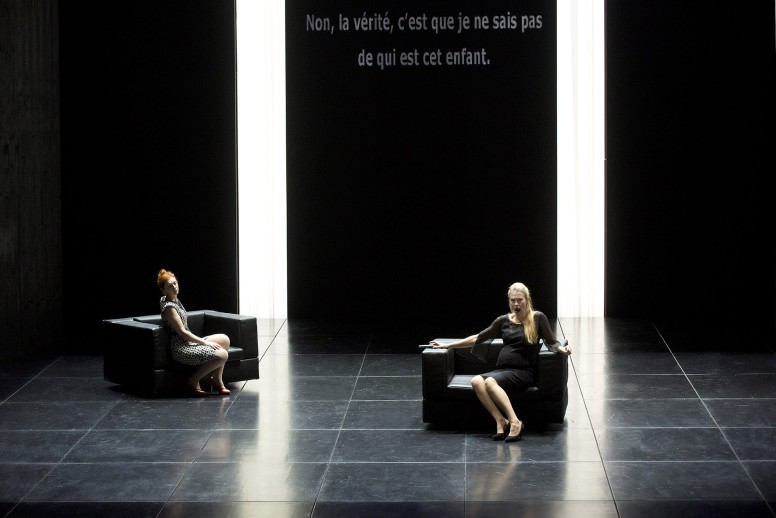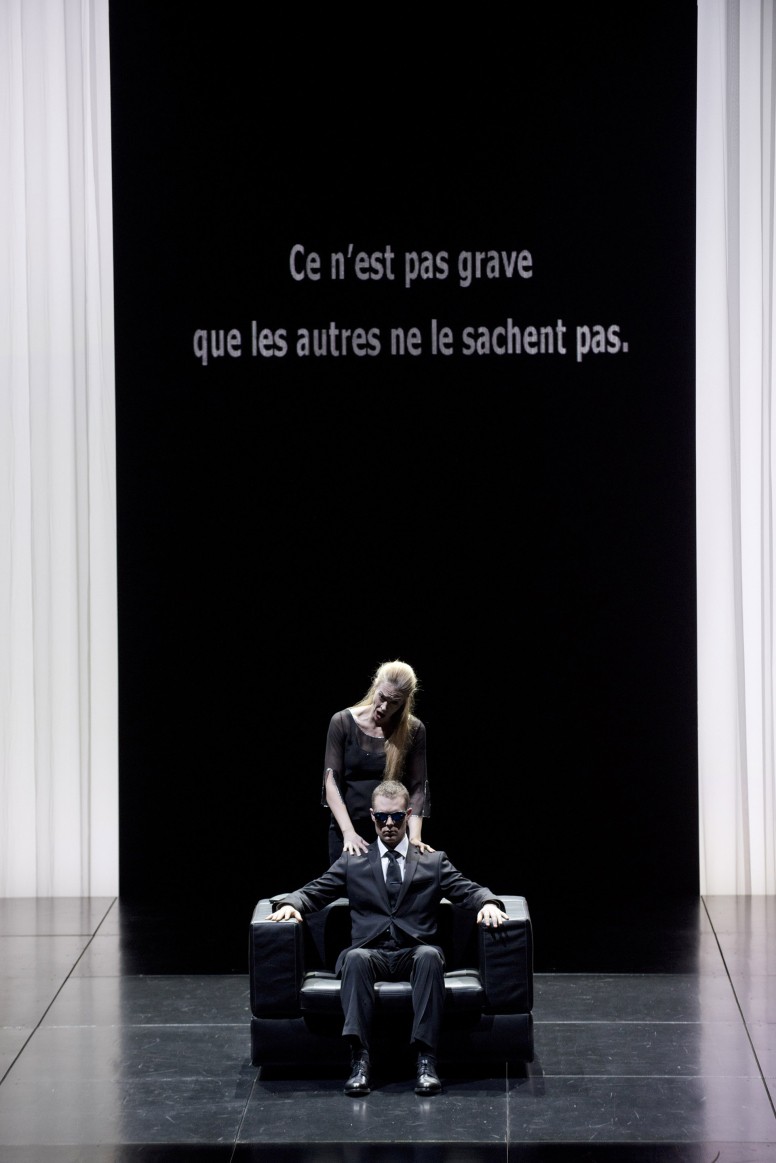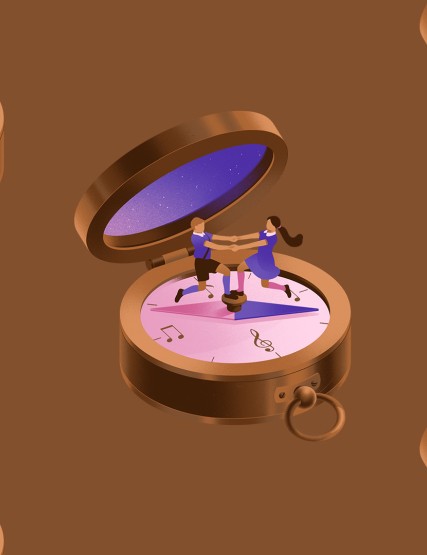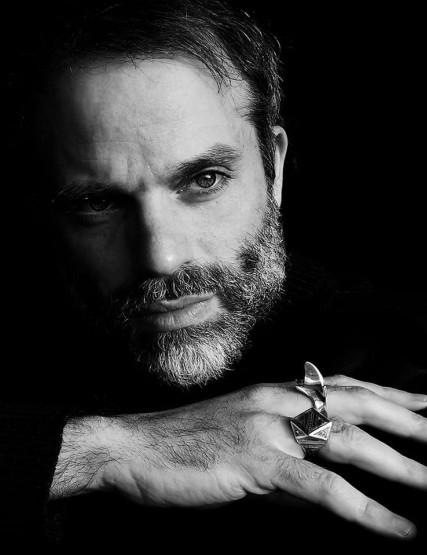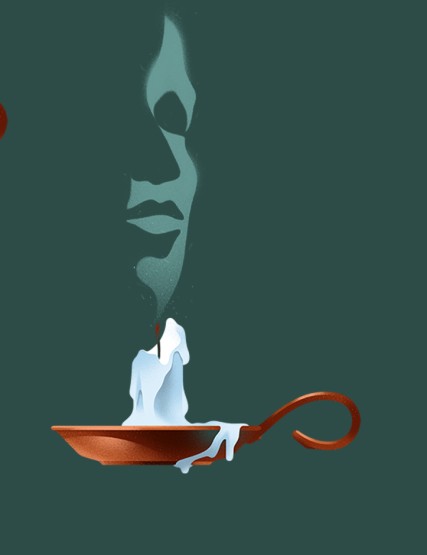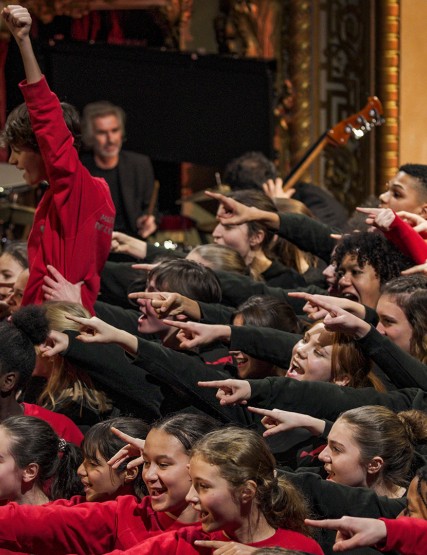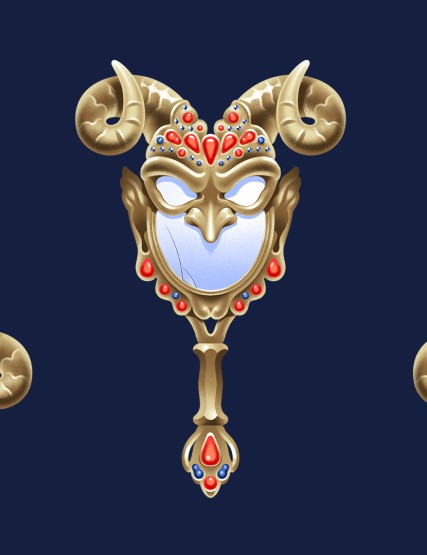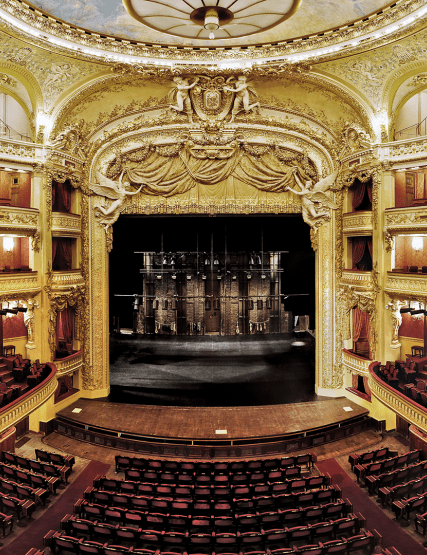Opéra by Philippe Boesmans with a libretto by Joel Pommerat adapted from his homonymous play. Premiered at the Théâtre Royal de La Monnaie, Brussels on 30 March 2014.
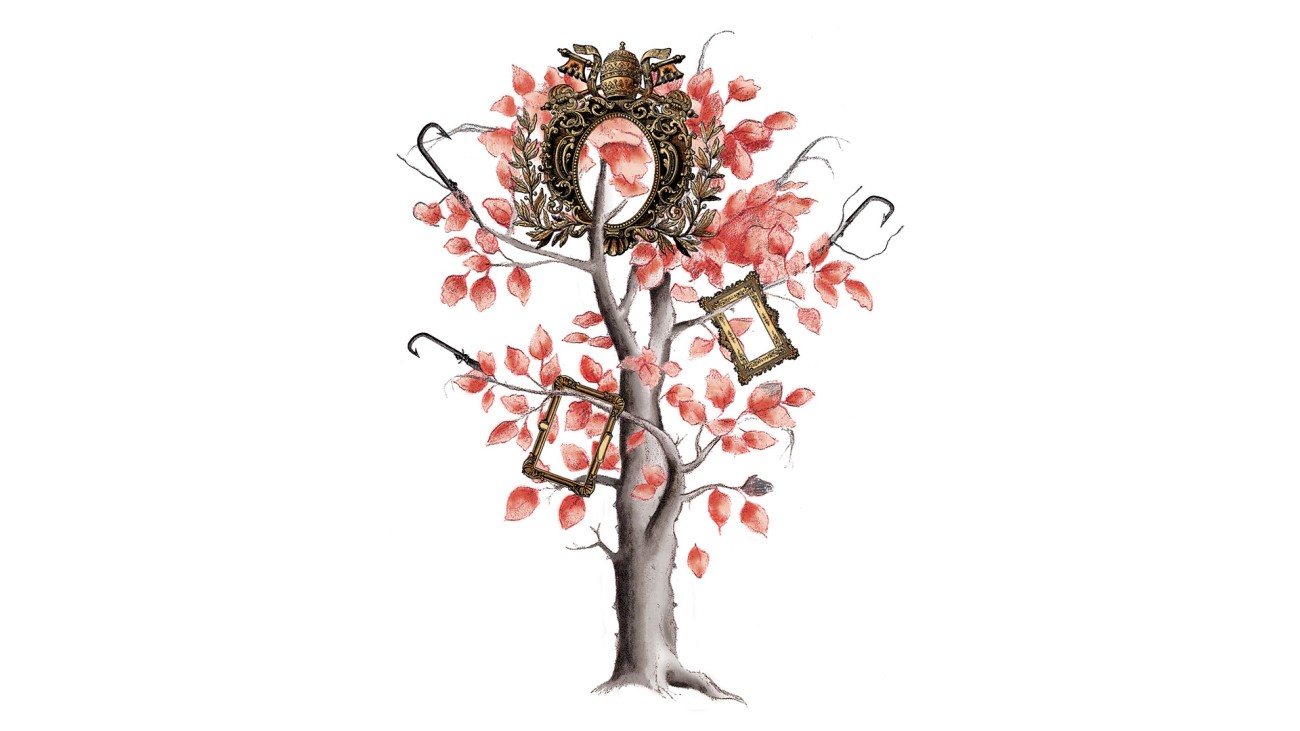
Philippe Boesmans is one of the great contemporary operatic composers. His sense of narration and of the stage, his inventive and sensitive musical art enabled his operas Reigen, Wintermärchen, Julie and Yvonne, princesse de Bourgogne to spread, anchoring them in today’s repertoire. In his new work, the Belgian composer appeals to Joël Pommerat, utilizing his literary landscape with Au monde, a play premiered in 2004. This is the second musical endeavor by the French author and stage director after Thanks to my Eyes.
Presentation of the work by Agnès Terrier 40 minutes prior to each performance.
Performance duration: 2h without an intermission
France Musique will broadcast Au Monde on the 14 March 2015 - 7pm.
A rich manufacturer organizes his succession before sinking into senility. But gathering his children upsets the family equilibrium while the approach of death compels everyone to lay oneself bare. In a dramaturgy that transfigures the realism of the subject through its unique handling of time and the stage, the score conducted by Patrick Davin displays all the symbolic scope of the work.
Scene 1
Ori, the youngest son of a large family, is to come back after five years of absence, giving up his career in the army. He is awaited by his old father, a great industrialist, his elder brother, his elder sister’s husband and his second sister, a TV star.
Scene 2
Ori’s three sisters meet again. Ori has decided to return because they all celebrate the youngest daughter’s birthday. Being an adopted child, she replaced a girl who disappeared and she questions her own identity and status within the family.
Scene 3
The father does not understand why Ori left the army.
Scene 4
While the birthday celebration is about to begin, the youngest daughter turns on the TV, which annoys the second daughter. Asked to talk about his plans, Ori presents a book he wrote. Nobody dares to open it. A foreign woman appears, engaged by the eldest daughter’s husband to attend her in her pregnancy.
Scene 5
The foreign woman lip-synchs an excerpt of My Way sung by a man – this might be a dream by the second daughter.
Scene 6
The elder daughters comfort the younger who wants her difference to be accepted.
Scene 7
The second daughter finds her elder sister together with Ori. She talks of her young sister’s nightmares. Alone with Ori, the eldest daughter speaks of their childhood. They kiss each other.
Scene 8
The youngest daughter declares to her brother-in-law that she likes old age. He retorts that she should stop lying and that only he is capable of telling the truth. The second daughter demands that the TV be turned off.
Scene 9
The foreign woman embraces the youngest daughter tenderly – this might be a dream by the second daughter.
Scene 10
Cries have been heard by the second daughter. The eldest son is amazed to find his brother-in-law hidden in the dark. As his father appears, Ori goes out into the night.
Scene 11
While the father is asleep, the second daughter speaks with her sisters about three women murdered during the night. She is reassured at the idea that their father protects them. Distraught, Ori is back from his night out. The youngest daughter hints at his eye problems. The second daughter has read Ori’s book but does not reveal its content. The foreign woman sings My Way – this might be a dream by the second daughter.
Scene 12
The sisters are worried by Ori’s health. The father offers him to run his business. Ori hesitates and bumps against a wall on leaving. The three sisters are alone. The youngest speaks again of her uneasiness while the second appeals to the eldest because no one talks of her pregnancy.
Scene 13
The second daughter confesses to her elder sister that the foreign woman appears in her dreams. After a week of reflection, Ori still cannot respond to his father’s offer. The second daughter claims that she saw blood on his face.
Scene 14
In a tense atmosphere, Ori confirms his indecision to the family.
Scene 15
The youngest daughter declares her fondness of her father and her taste for old age.
Scene 16
Ori tells the foreign woman that he knows who she is and is not afraid of her. He kills her – this might be a dream by the second daughter.
Scene 17
The foreign woman, naked, sings My Way – this might be a dream by the second daughter.
Scene 18
The two eldest daughters are anxious at screams from their younger sister. The father, who at first cannot be found, leaves the bedroom. The second daughter talks of rumors about pictures of Ori covered in blood. The foreign woman speaks to the eldest daughter’s husband in her language.
Scene 19
The eldest daughter claims she does not know who her child’s father is. The father announces with difficulty that Ori accepts to run the family business. The second daughter is glad to have been entrusted with a new program with animals.
Scene 20
The eldest daughter assures Ori, wearing black glasses, that she understands him. The family watches the new program but the father no longer recognizes his star daughter. While her sisters repeatedly tell her how beautiful and funny she is, she collapses.
Musical direction, Patrick Davin • Staging, Joël Pommerat • With Frode Olsen, Werner Van Mechelen, Philippe Sly, Charlotte Hellekant, Patricia Petibon, Fflur Wyn, Yann Beuron, Ruth Olaizola • Orchestre Philharmonique de Radio France
See all the castSunday, February 22, 2015 - 3:00pm
Tuesday, February 24, 2015 - 8:00pm
Thursday, February 26, 2015 - 8:00pm
Friday, February 27, 2015 - 8:00pm
2:00 - Salle Favart
110, 87, 67, 41, 15, 6€
Cast
















Orchestre Philharmonique de Radio France
Commission, Théâtre Royal de La Monnaie
Co-production, Opéra Comique, Théâtre Royal de La Monnaie



